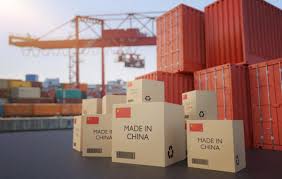To prevent debt crises, the top economic envoy for the US Treasury on Friday urged the International Monetary Fund and multilateral development banks to explore novel approaches for offering low- and middle-income nations short-term cash help.
Undersecretary of the Treasury for International Finance Jay Shambaugh stated at an Atlantic Council gathering that the Treasury was collaborating with these organizations “to find a better path” for nations facing liquidity constraints and having large but manageable debt loads.
Laptops 1000In charge of the World Bank and IMF’s large U.S. shareholdings, Shambaugh expressed his hope that the organizations would make headway at their annual meetings later this month in creating new procedures and altering program designs to better serve the needs of numerous nations experiencing transient shocks.
The average yearly debt service expenditure for low-income nations increased from roughly $20 billion in 2010 to $60 billion in 2020, according to Shambaugh.
This might place a “significant strain” on the global debt architecture since some of these countries will be required to make sizable principal repayments shortly.
“If you are a country committed to sustainable development and if you are willing to engage with the IMF and MDBs to unlock significant financing alongside significant reform measures, there needs to be a financing package from bilateral, multilateral, and private sector sources to bridge your liquidity needs in a way that is supportive of your sustainable long-run development,” Shambaugh stated.
He added that the international financial institutions would need to craft their lending and reform programs to prevent short-term budgetary adjustments from causing long-term damage because they would be slashing vital investments, like infrastructure.
He said the plan “will require hard work and innovation” at these institutions.
CHINESE REVIEWS
In addition, Shambaugh criticized Beijing’s recent moves to increase subsidies for industrial projects even though China produces one-third of the world’s manufactured goods.
He claimed that in the absence of domestic demand, the plan is “unlikely to be successful” and would result in export spillovers to other nations.
“Focusing on manufacturing via nonmarket tools and subsidies despite China’s already outsized role, this also means China may be closing what has been a typical development path to many other countries eyeing low-cost manufacturing as the next stage of their development,” Shambaugh stated.
“And channeling the saving to particular sectors increases the likelihood of overcapacity and spillovers to other countries.”

















